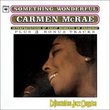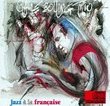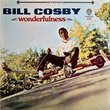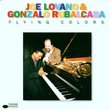| All Artists: Peteris Vasks, Kronos Quartet Title: Peteris Vasks: String Quartet No. 4 Members Wishing: 1 Total Copies: 0 Label: Nonesuch Release Date: 8/19/2003 Genre: Classical Styles: Chamber Music, Historical Periods, Classical (c.1770-1830) Number of Discs: 1 SwapaCD Credits: 1 UPC: 075597969528 |
Search - Peteris Vasks, Kronos Quartet :: Peteris Vasks: String Quartet No. 4
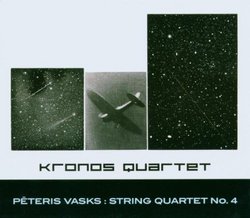 | Peteris Vasks, Kronos Quartet Peteris Vasks: String Quartet No. 4 Genre: Classical
Full title - Peteris Vasks - String Quartet No. 4. Vasks' Fourth String Quartet, composed of five movements, was commissioned for the Kronos Quartet and was premiered in 2000 at the Theatre de la Ville in Paris. A sombe... more » |
Larger Image |
CD DetailsSynopsis
Album Description Full title - Peteris Vasks - String Quartet No. 4. Vasks' Fourth String Quartet, composed of five movements, was commissioned for the Kronos Quartet and was premiered in 2000 at the Theatre de la Ville in Paris. A somber reflection on the passing century, it incorporates Latvian folk songs, its movements variously meditative, strident, restless, subdued. Slipcase. Nonesuch. 2003. Similarly Requested CDs
|
CD ReviewsVasks voices compassion at the end of a brutal century R. Hutchinson | a world ruled by fossil fuels and fossil minds | 10/31/2004 (4 out of 5 stars) "The Kronos Quartet continues its devotion to contemporary works by Eastern European composers with this release. Lyrical and elegiac, the 4th String Quartet by Latvian composer Peteris Vasks is a meditation on the brutality and suffering of the 20th century. Commissioned for Kronos, it was first performed in May of 2000. It is a five-movement work of about 30 minutes, and while not highly original, it has excellent models. Vasks declares that the second and fourth movements, Toccata I and Toccata II, are "in a spirit close to that of Shostakovich's style" -- "aggressive, and at times, ironic." This is a notable departure for Vasks, who is not known for anything dissonant or angry. These movements remind me specifically of Shostakovich's famous 8th Quartet, a work full of rage and sorrow dedicated to "the victims of war and fascism," and thought by many to be an indictment of Stalin as well (recorded by Kronos on BLACK ANGELS -- see my review). The first, third and fifth movements (Elegy, Chorale, and Meditation) are in the style that Vasks is known for, influenced by the "holy minimalism" of Part and Gorecki, with Latvian folksong motifs and romantic gestures that some might find to be overly ripe. He utilizes glissandos, seemingly representing movements up and down between the Earth to Heaven, which echo the powerful works of Sofia Gubaidulina. And Vasks draws on yet another influence -- the climax of the central Chorale parallels the well-known climax of Barber's "Adagio." The closing Meditation, the longest movement at 11:35, features a long, lovely solo for David Harrington's violin. This passage beautifully expresses the feeling of COMPASSION. Vasks says of his 4th Quartet, "[t]here has been so much bloodshed and destruction, and yet love's power and idealism have helped keep the world in balance." Utilizing the recognizable works by Barber and Shostakovich, both emotionally direct and powerful works, couldn't make more sense. Vasks may not be the most original of contemporary composers, but he knows how to work with existing materials and create music that is accessible and moving." WOW!!!!!! Jacob Goddard | Visalia, CA | 08/23/2003 (5 out of 5 stars) "I saw the Kronos Quartet perform this work in August of 2002 and I was completely BLOWN away. It is a work that is reminiscent of the string quartets of Terry Riley and of Samuel Barber's masterful "Adagio for Strings". I immediately emailed the quartet to see if they were going to release a recording of it and I was told they had one in the works. This is it, and to this day it melts me. The fifth movement, titled "meditation", is especially beautiful. Buy it. See for yourself. You will not regret it." See the distant light C. L. Crider | Eastern USA | 01/29/2004 (5 out of 5 stars) "Peteris Vasks was new to us and a chance encounter. Well worth the money. Wonderfully performed and recorded, it soars and urges our emotions through a wide range. Technically sound and marvelous compositions, quite a find!"
|

 Track Listings (5) - Disc #1
Track Listings (5) - Disc #1